Who should you see and what’s the difference between a Physiotherapist, a Chiropractor and an Osteopath? The short answer is…not that much.
Historically Physiotherapists were used primarily as injury and post-surgical rehabilitation experts. Chiropractors only diagnosed and treated injuries pertaining to the spine through targeted spinal adjustments. Osteopaths looked at improving the functionality of soft tissue structures by improving blood flow via stretching and massage techniques.
However, with the importance of implementing evidence based practice and a holistic approach to patient care, the specialist knowledge of Physios Chiros and Osteos has widened to a point where a crossover in presenting complaints, diagnosis and treatment approach is inevitable.
What does that mean?
A patient may present with acute ankle pain and swelling following an inversion sprain (rolled ankle). The approach to management in this case from a neuromuscular skeletal perspective would be;
- Diagnosing the tissue in lesion.
- Identify any potential predisposing factors (is there a past history of inversion sprains, is there a weakness in the ankle stabilisers, is there a proprioceptive deficit, are there aberrant movement patterns higher up in the kinematic chain?)
- Localised injury management via soft tissue therapy, dry needling, mobilisations, adjustments, taping techniques, etc)
- Ensure optimal function of the entire kinematic chain by improving local and surrounding joint/tissue mobility & functionality (make sure the foot/ankle/knee/hip/pelvis/spine are working and moving correctly)
- Introduce progressive rehabilitation to ensure return to pre-injury function and prevent reoccurrence.
- Regular objective assessment to ensure progress and improvements.
So the question shouldn’t be which profession should I see, but rather which professional.
Find a practitioner (Physio/Chiro/Osteo/etc) who;
- Is a good diagnostician
- Focuses on evidence based health care
- Focuses on addressing the cause of injury rather than just the injury itself
- Is able to educate you
- Is able to work in a team-care approach
- Understands their strengths and their weaknesses
- Is not against a second opinion from other health professionals
- Can communicate clearly
To chat with one of our Human Movement Co. professionals, book online today!


Comments are closed.